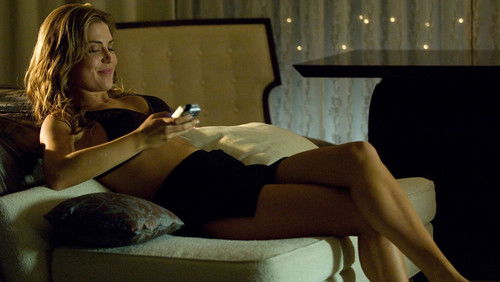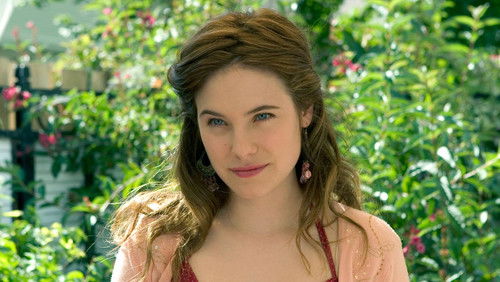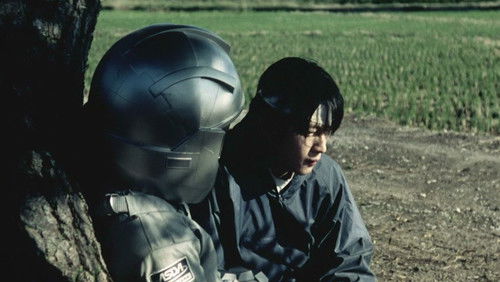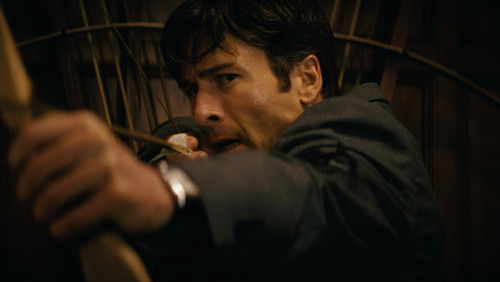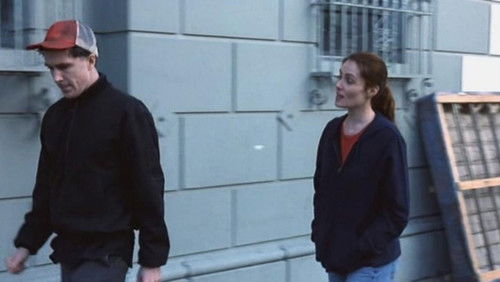Das Haus im Kreidegarten (1964)
63KDas Haus im Kreidegarten: Directed by Ronald Neame. With Deborah Kerr, Hayley Mills, John Mills, Edith Evans. An elderly woman hires a governess with a mysterious past to look after her disturbed and spoiled teenage granddaughter, who eventually understands the meaning of self-sacrifice, as an example of love, and grows into a better person.
“Hayley Mills is perhaps today best known, at least in America, as the teenage heroine of the series of family-oriented comedies which she made for Disney in the 1960s. She did, however, also make a number of films in Britain, often on serious themes, and u0026quot;The Chalk Gardenu0026quot; is one of these. (Other examples include u0026quot;Tiger Bayu0026quot; and u0026quot;Whistle Down the Windu0026quot;).u003cbr/u003eu003cbr/u003eThe story is set in an old manor house in Sussex. (The house used is a real one, in the village of East Dean on the South Downs near Eastbourne). A mysterious woman calling herself Miss Madrigal arrives at the house to be interviewed for the position of governess to Laurel, the teenage granddaughter of the owner, Mrs. St Maugham. Although Miss Madrigal has no references and no previous experience as a governess, she gets the position, largely because Laurel is such a badly-behaved child that none of the other candidates can bear the thought of looking after her.u003cbr/u003eu003cbr/u003eThis is, however, no comedy about an amusingly naughty girl. It soon becomes clear that Laurelu0026#39;s behaviour is far more than childish mischief or teenage rebellion, and that she is in fact a deeply unhappy and disturbed young woman. She seems to be preoccupied with crime, especially murder and arson, and the roots of her unhappiness appear to lie in her upbringing. Her father is dead and her mother abandoned her when she married for a second time, leaving the girl to be brought up by her imperious and eccentric grandmother, who has neglected her. Laurelu0026#39;s mother Olivia, however, has now reappeared and is intent on reclaiming custody of her daughter, a prospect Mrs. St Maugham views with abhorrence as she regards Olivia as an unfit mother.u003cbr/u003eu003cbr/u003eThe title u0026quot;The Chalk Gardenu0026quot; refers on a literal level to the alkaline chalky soil in Mrs. St Maughamu0026#39;s garden, an unsuitable medium for growing the sort of flowers which the old lady is trying to plant, especially rhododendrons which need acid soil. (In other parts of Sussex they grow like weeds). Metaphorically, it is used to suggest that Laurel, symbolically named after a plant, has also been raised in the wrong type of environment.u003cbr/u003eu003cbr/u003eThe film was directed by Ronald Neame who was also responsible for u0026quot;The Prime of Miss Jean Brodieu0026quot;. In both films he makes symbolic use of colour. Here the predominant colours are green (representing the u0026quot;gardenu0026quot; element of the title) and white (representing u0026quot;chalku0026quot;). The green of the vegetation predominates in the outdoor scenes, white in the indoor ones, and many scenes feature a prominent white object- a nightdress, a glass of milk, the cliffs of Beachy Head or the Seven Sisters. Symbolically, green can be seen as symbolising youth and growth, white with innocence but also with aridity and sterility. Other colours are associated with particular characters who are often seen dressed in them- yellow with Laurel, blue with Miss Madrigal, purple (the colour of both royalty and mourning) with Mrs. St Maugham, who is both imperious and unhappy. The bright reds, pinks and oranges which played an important part in u0026quot;Jean Brodieu0026quot; are not much used.u003cbr/u003eu003cbr/u003eAs in u0026quot;Jean Brodieu0026quot;, Neame elicits some fine performances from his stars, especially the women. (In both films the female roles are more prominent than the male ones). Apart from three silent movies in the 1910s, Edith Evans was an actress who came late to the cinema, not making her first u0026quot;talkieu0026quot; until she was in her sixties, but quickly carved out a niche playing haughty upper-class ladies, most famously Lady Bracknell in u0026quot;The Importance of Being Earnestu0026quot;. Here, as Mrs St Maugham, she shows that she could play this sort of role in serious drama as well as comedy. Deborah Kerr, as Madrigal, is suitably mysterious and inscrutable in the early scenes, more passionate in the later ones after the secret of her past (I wonu0026#39;t say what it is) has been revealed. There is also a good contribution from Hayleyu0026#39;s father John as the butler Maitland (who may also hide a secret of his own). John Mills also acted with his daughter in three other films, including u0026quot;Tiger Bayu0026quot;.u003cbr/u003eu003cbr/u003eHayley Mills is brilliant as the disturbed, unhappy Laurel, one of her best roles and a more challenging one even than Gillie in u0026quot;Tiger Bayu0026quot; or Cathy in u0026quot;Whistle Down the Windu0026quot;. Seeing this film made me all the more surprised that she did not go on to become a bigger star as an adult. This is one of a number of films in which Hayley plays a child or teenager growing up in something other than the traditional two-parent family- in u0026quot;Whistle Down the Windu0026quot; she is being raised by her widowed father, in u0026quot;Tiger Bayu0026quot; and u0026quot;Pollyannau0026quot; she is an orphan and in u0026quot;The Parent Trapu0026quot; she plays twin sisters whose parents are divorced.u003cbr/u003eu003cbr/u003eI would not rate this film quite as highly as u0026quot;Tiger Bayu0026quot;, u0026quot;Whistle Down the Windu0026quot;, or u0026quot;Jean Brodieu0026quot;, three of the classics of the British cinema. The plot, based upon a play by Enid Bagnold, can seem a bit too neat and schematic when the secret of the mysterious Miss Madrigalu0026#39;s own past is finally revealed, and there is some rather trite moralising. Nevertheless, it is a well-acted and well-photographed piece of film-making, and I am surprised that it is not better known. 7/10”

